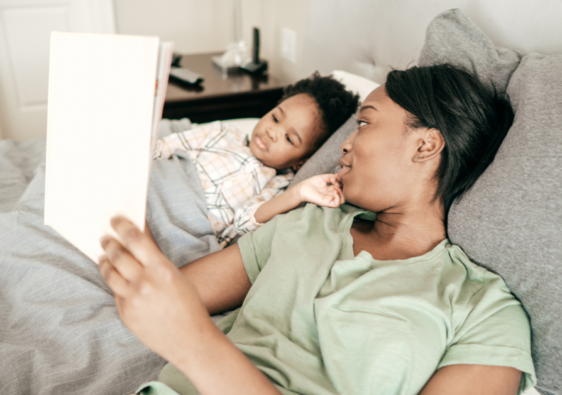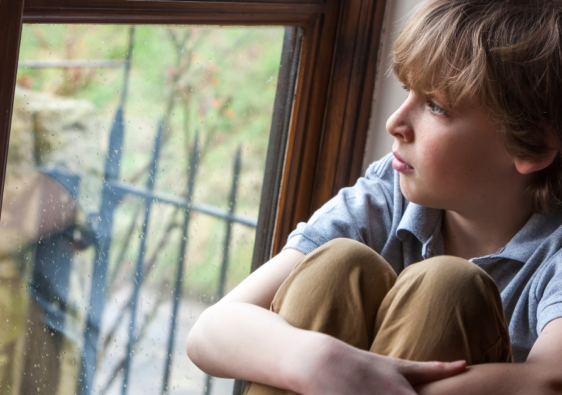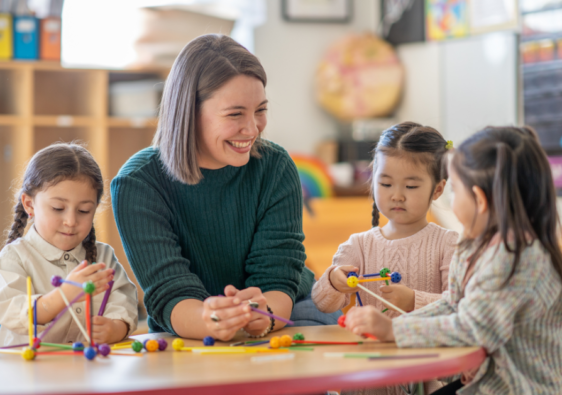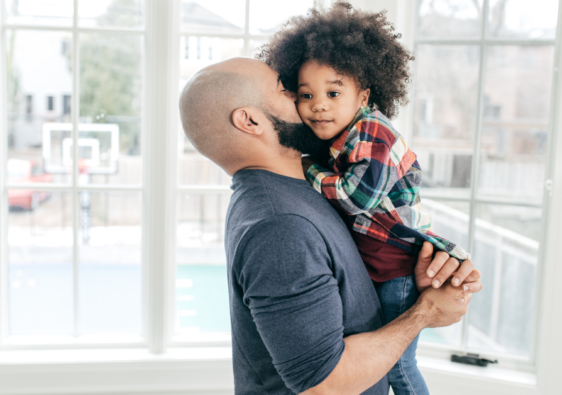The Evolution of Parenting Styles
Parenting has undergone a significant transformation over the past few decades. The shift from traditional to modern approaches reflects broader societal changes, including technological advancements, evolving family structures, and new understandings of child development.
As a parent myself, I’ve seen firsthand how these changes have reshaped our approach to raising children. Gone are the days when strict discipline and unquestioning obedience were the norm.
Today’s parents face a unique set of challenges and opportunities that our grandparents could never have imagined.
Understanding Traditional Parenting
Traditional parenting, often associated with previous generations, is characterized by a more authoritarian approach. In this model, parents are seen as the ultimate authority figures, and children are expected to follow rules without question.
Discipline and Authority
Discipline in traditional parenting is typically more rigid, with an emphasis on respect, obedience, and conformity to societal norms.
Parents who follow this approach often believe that strict rules and consequences are necessary to shape a child’s character and prepare them for the challenges of adulthood.
One of the strengths of traditional parenting is it’s emphasis on teaching children respect for authority and the importance of following rules.
This approach can help children develop a strong sense of discipline and responsibility, which can serve them well in various aspects of life, from academic achievement to future career success.
However, critics argue that this approach may stifle creativity and independence. Children raised in strictly traditional households may struggle to think critically or make decisions for themselves, potentially hindering their ability to adapt to changing circumstances in adulthood.
Family Structure and Roles
In traditional parenting, there’s often a clear hierarchy within the family structure. Fathers are typically seen as the primary breadwinners and disciplinarians, while mothers are expected to take on most of the child-rearing responsibilities.
This division of roles can create a sense of stability and predictability for children. Knowing what to expect from each parent can provide a sense of security and structure.
However, it may also limit flexibility and personal expression, both for parents and children.
The Rise of Modern Parenting
Modern parenting tends to be more child-centered and flexible. It emphasizes open communication, emotional intelligence, and fostering a child’s individuality.
As a parent who leans towards this approach, I’ve found that it allows for a deeper connection with my children and a more nuanced understanding of their needs and personalities.
Positive Discipline Techniques
One of the key features of modern parenting is the emphasis on positive discipline techniques. Instead of relying on punishment, modern parents often use strategies like time-outs, natural consequences, and positive reinforcement to guide their children’s behavior.
This approach aims to help children understand the reasons behind rules and develop self-discipline. By explaining the logic behind certain expectations and involving children in problem-solving, modern parents hope to raise people who can make good decisions independently.
Technology and Parenting
Technology plays a significant role in modern parenting, presenting both opportunities and challenges. On one hand, parents have access to a wealth of information and resources to help them navigate parenting challenges.
From online parenting forums to educational apps for children, technology has opened up new avenues for learning and support.
On the other hand, managing screen time and ensuring children’s online safety has become a major concern for modern parents.
We’re tasked with teaching our children to navigate the digital world responsibly, a challenge that didn’t exist for previous generations.
Balancing Work and Family Life
One of the most significant differences between modern and traditional parenting is the approach to work-life balance.
In traditional families, there was often a clear division of labor, with one parent (typically the father) working outside the home while the other (usually the mother) focused on child-rearing and household management.
Modern parenting, however, often involves dual-income households where both parents work outside the home. This shift has led to new challenges in balancing career and family responsibilities.
The Guilt Factor
Many modern parents struggle with feelings of guilt and inadequacy as they try to juggle work commitments with quality time with their children.
I’ve experienced this firsthand, often feeling torn between my professional ambitions and my want to be present for every moment of my children’s lives.
To address these challenges, many modern parents are advocating for more flexible work arrangements and better parental leave policies.
There’s also a growing emphasis on shared parenting responsibilities, with both parents taking an active role in childcare and household tasks.
The Impact of Cultural Diversity
Another key aspect of modern parenting is the recognition and celebration of cultural diversity. As our societies become increasingly multicultural, many parents are embracing inclusive parenting practices that honor different cultural traditions and perspectives.
This approach can involve exposing children to diverse experiences, teaching them about different cultures, and fostering an appreciation for diversity.
It may also mean blending different cultural approaches to parenting, creating a unique family culture that draws from various traditions.
In my own family, we’ve found that incorporating elements from different cultural backgrounds has enriched our parenting experience and broadened our children’s worldview.
Navigating the Digital Landscape
Perhaps one of the most significant challenges faced by modern parents is raising children in the digital age.
Unlike traditional parents, who may have been concerned about too much television time, modern parents must navigate a complex landscape of smartphones, tablets, social media, and online gaming.
Benefits and Risks of Technology
While technology offers many educational and social benefits, it also presents risks such as cyberbullying, online predators, and excessive screen time.
Modern parents must strike a delicate balance between allowing their children to benefit from technology while also setting suitable boundaries and teaching digital literacy skills.
In our household, we’ve implemented “tech-free” times and zones, encouraging face-to-face interaction and outdoor activities.
We’ve also made a point of staying informed about the latest digital trends and platforms to better understand and guide our children’s online experiences.
The Role of Parental Support Networks
Both traditional and modern parents benefit from support networks, but the nature of these networks has evolved.
Traditional parents often relied heavily on extended family and close-knit communities for support and advice.
While these networks still play a crucial role for many families, modern parents also have access to online communities, parenting forums, and professional resources.
Navigating Information Overload
These expanded support networks can provide modern parents with diverse perspectives and expert advice.
However, they can also lead to information overload and conflicting advice, making it challenging for parents to navigate the wealth of available information.
I’ve found that while online resources can be incredibly helpful, it’s important to trust my own instincts and to seek out reliable, evidence-based sources of information.
Building a trusted network of fellow parents, both online and in-person, has been invaluable in navigating the complexities of modern parenting.
Embracing Flexibility and Individuality
One of the strengths of modern parenting is it’s emphasis on flexibility and recognizing each child’s individuality.
Unlike traditional parenting, which often applied a one-size-fits-all approach, modern parenting acknowledges that each child is unique and may need different parenting strategies.
This approach allows for more personalized parenting, tailored to each child’s needs, temperament, and developmental stage. It can lead to stronger parent-child relationships and help children develop a positive sense of self.
However, it also needs parents to be more adaptable and reflective in their parenting approach.
Adapting to Each Child’s Needs
In my experience, this flexible approach has allowed me to better understand and support each of my children’s unique personalities and challenges.
While it can be more time-consuming and mentally demanding than a more rigid parenting style, I’ve found that it leads to more harmonious family relationships and helps my children feel truly seen and understood.
The Importance of Self-Care
Modern parenting places a greater emphasis on parental self-care than traditional approaches. Recognizing that parents can’t pour from an empty cup, modern parenting philosophies encourage parents to prioritize their own mental health and well-being.
This focus on self-care can help prevent parental burnout and create a more positive family environment. However, it can also lead to feelings of guilt for parents who struggle to find time for themselves amidst the demands of work and family life.
Finding Balance
As a parent, I’ve learned that taking time for self-care isn’t selfish – it’s essential. Whether it’s a few minutes of meditation each morning, a weekly exercise class, or regular date nights with my partner, these moments of self-care allow me to recharge and be more present and patient with my children.
Emotional Intelligence and Communication
Modern parenting places a strong emphasis on emotional intelligence and open communication. Unlike traditional approaches that might have discouraged the expression of certain emotions, modern parents often strive to create an environment where children feel safe expressing and understanding their feelings.
Fostering Emotional Literacy
Teaching children to recognize, name, and manage their emotions is a key aspect of modern parenting. This involves allowing children to express their feelings and helping them develop strategies to cope with difficult emotions.
In our family, we use tools like “emotion charts” and regular check-ins to help our children build their emotional vocabulary and self-awareness. We’ve found that this approach helps our children navigate their own emotions and enhances their empathy and social skills.
The Role of Play in Modern Parenting
While play has always been an important part of childhood, modern parenting often places a greater emphasis on the educational and developmental aspects of play. Many modern parents seek out toys and activities that are fun and promote learning and skill development.
Balancing Structured and Free Play
There’s a growing recognition of the importance of both structured and unstructured play. While organized activities and educational toys can provide valuable learning opportunities, free play allows children to develop creativity, problem-solving skills, and independence.
In our household, we try to strike a balance between providing enriching activities and allowing plenty of time for unstructured play.
We’ve found that this approach helps our children develop a love of learning while also fostering their imagination and self-direction.
Nutrition and Health in Modern Parenting
Modern parents often place a greater emphasis on nutrition and overall health than previous generations. With access to more information about the impact of diet on child development and long-term health, many parents are making conscious choices about their children’s nutrition from an early age.
Navigating Food Choices
This focus on nutrition can be both empowering and overwhelming. With so much information available about organic foods, allergens, and specialized diets, parents often face difficult decisions about what to feed their children.
In our family, we’ve adopted a balanced approach, focusing on whole foods and home-cooked meals when possible, and allowing for treats and flexibility. We’ve found that involving our children in meal planning and preparation teaches them about nutrition and makes them more likely to try new foods.
Environmental Consciousness in Parenting
Many modern parents are increasingly aware of environmental issues and strive to raise their children with a sense of environmental responsibility.
This can involve making eco-friendly choices in products and lifestyle, as well as teaching children about sustainability and conservation.
Sustainable Parenting Practices
From choosing cloth diapers to reducing plastic use, many parents are looking for ways to minimize their environmental impact. This focus on sustainability can extend to toy choices, transportation decisions, and even family vacation planning.
In our family, we’ve made an effort to incorporate environmental consciousness into our daily lives. We involve our children in recycling efforts, gardening, and discussions about climate change and conservation.
While it can be challenging at times, we believe that raising environmentally aware children is crucial for the future of our planet.
The Influence of Social Media on Parenting
Social media has had a profound impact on modern parenting, creating both opportunities and challenges. On one hand, social media platforms provide a way for parents to connect, share experiences, and find support.
On the other hand, they can also contribute to feelings of inadequacy and pressure to present a perfect image of family life.
Navigating the Social Media Landscape
Many parents struggle with decisions about how much of their children’s lives to share online, balancing the want to connect with friends and family with concerns about privacy and digital footprints.
In our family, we’ve established clear guidelines about what we share online, involving our older children in these decisions as they become more aware of social media. We also make a conscious effort to be present in the moment rather than always documenting our experiences for social media.
The Changing Face of Education and Parental Involvement
Modern parenting often involves a higher level of involvement in children’s education than in previous generations.
With increased awareness of different learning styles and educational philosophies, many parents are taking a more active role in their children’s schooling.
Choosing Educational Approaches
From homeschooling to choice education models like Montessori or Waldorf, modern parents have more choices than ever when it comes to their children’s education.
This can lead to more tailored educational experiences and needs parents to be more informed and involved in educational decisions.
In our family, we’ve found that staying engaged with our children’s education – through regular communication with teachers, supporting homework, and supplementing school learning with home activities – has helped our children develop a love of learning and take ownership of their education.
Addressing Mental Health in Modern Parenting
There’s a growing awareness of the importance of mental health in child development, and many modern parents are taking proactive steps to support their children’s emotional well-being.
This can involve everything from teaching mindfulness techniques to seeking professional help when needed.
Destigmatizing Mental Health
Unlike previous generations, where mental health issues might have been ignored or stigmatized, many modern parents are working to create an open dialogue about emotional and psychological well-being.
In our family, we make a point of checking in regularly about feelings and stress levels, and we’ve introduced simple mindfulness practices like deep breathing exercises.
We believe that by normalizing conversations about mental health, we’re equipping our children with valuable tools for their future well-being.
The Role of Extended Family in Modern Parenting
While traditional parenting often involved significant input from extended family members, modern families may be more geographically dispersed. This can lead to both challenges and opportunities in terms of support and influence.
Maintaining Connections
Many modern parents are finding creative ways to keep extended family involved in their children’s lives, even from a distance. This might involve regular video calls, shared online photo albums, or planned family reunions.
In our family, we’ve made a conscious effort to maintain strong connections with grandparents, aunts, uncles, and cousins, even though we don’t all live in the same area. We believe that these relationships provide our children with a sense of belonging and family history that enriches their lives.
Preparing Children for a Rapidly Changing World
One of the unique challenges of modern parenting is preparing children for a future that’s difficult to forecast. With rapid technological advancements and changing job markets, many parents are focusing on developing adaptable skills rather than specific knowledge.
Fostering Resilience and Adaptability
Modern parenting often emphasizes skills like critical thinking, creativity, and emotional intelligence – attributes that are likely to be valuable regardless of how the world changes.
In our family, we try to encourage curiosity and a love of learning, believing that these qualities will serve our children well in any future scenario. We also focus on teaching problem-solving skills and resilience, helping our children learn to adapt to new situations and bounce back from setbacks.
Key Takeaways
- Traditional parenting tends to be more authoritarian, while modern parenting is often more child-centered and flexible.
- Modern parenting faces unique challenges, including managing technology use and balancing work and family life.
- Cultural diversity and inclusivity play a significant role in modern parenting approaches.
- Both traditional and modern parenting styles have their strengths and weaknesses, and many families adopt a blend of both approaches.
- The key to effective parenting, regardless of style, is to prioritize open communication, emotional support, and adaptability to meet each child’s unique needs.
People Also Asked
What is the difference between traditional and modern parenting?
Traditional parenting typically involves more rigid discipline and clear hierarchies, while modern parenting tends to be more flexible and child-centered, focusing on open communication and emotional intelligence.
How does technology affect modern parenting?
Technology provides access to information and resources for parents and presents challenges in managing children’s screen time and online safety.
Are there benefits to traditional parenting methods?
Traditional parenting can instill strong discipline and respect for authority, which can be beneficial in certain aspects of life.
How do modern parents balance work and family life?
Many modern parents advocate for flexible work arrangements and shared parenting responsibilities to balance career and family demands.
What role does cultural diversity play in modern parenting?
Modern parenting often embraces cultural diversity, incorporating different traditions and perspectives into parenting approaches.
How do modern parents approach discipline?
Modern parenting often emphasizes positive discipline techniques, focusing on natural consequences and teaching children to understand the reasons behind rules.
What is the importance of emotional intelligence in modern parenting?
Modern parenting places a strong emphasis on developing children’s emotional intelligence, helping them recognize and manage their emotions effectively.
How do modern parents handle screen time for their children?
Many modern parents set boundaries around screen time, encourage a balance with other activities, and teach digital literacy skills.
What are some challenges unique to modern parenting?
Modern parents often face challenges such as information overload, balancing work and family, and navigating the digital landscape with their children.
How do modern parents approach education?
Modern parents often take a more active role in their children’s education, exploring various educational philosophies and supplementing school learning with home activities.



